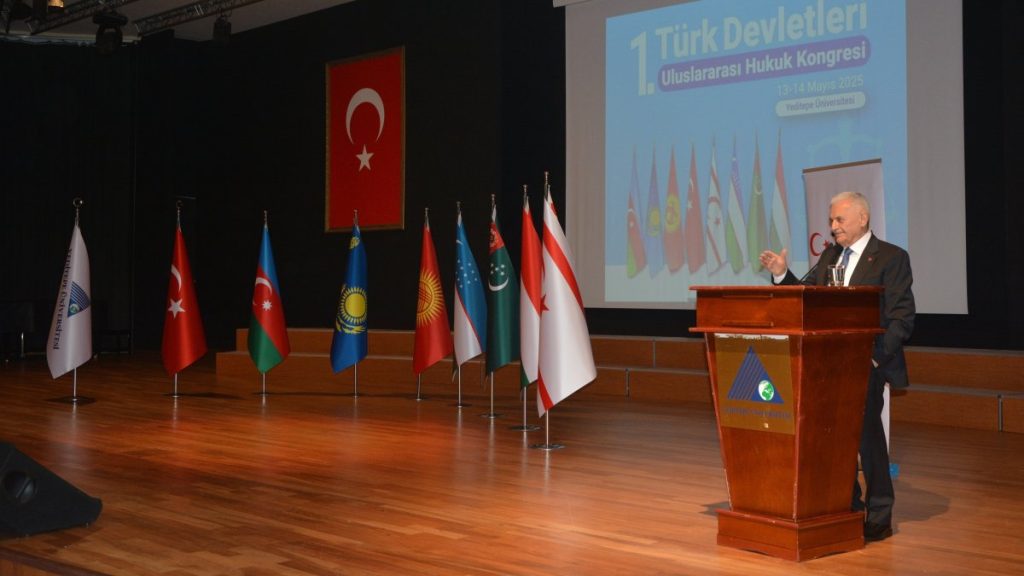The First Legal Congress of Turkic States, organized in partnership with the Turkish Cooperation and Coordination Agency (TIKA), convened at Yeditepe University in Istanbul to enhance legal cooperation, reinforce shared legal heritage, and support judicial reforms across the Turkic world.
The congress brought together high-level judicial officials and legal experts from Turkic countries, including Türkiye, Azerbaijan, Kazakhstan, Kyrgyzstan, Uzbekistan and Turkmenistan. Participants included the President of Türkiye’s Constitutional Court Kadir Özkaya, Chairman of the Council of Elders of the Organization of Turkic States (OTS) Binali Yıldırım, and senior representatives from international legal institutions and universities.
The event addressed key topics such as the rule of law, legal education, harmonization of judicial practices, and the foundations of a shared legal language within the Turkic world.
‘Justice is a shared journey’
Speaking at the event, Constitutional Court President Özkaya underlined the deep connection between the Turkic legal tradition and modern constitutional systems.
“Our historical experiences, from oral traditions to written codes, form a bridge to contemporary legal institutions,” he said.
He noted that the rule of law involves more than adherence to rules – it also ensures protection of fundamental rights, judicial independence and limits on public power. Özkaya called for closer cooperation on joint legal education programs, arbitration centers and cybersecurity regulations. “Justice is not only a goal; it is a path we must walk together. This journey is essential for building a fairer future for the Turkic world and humanity,” he said.
A strategic milestone
In his remarks, OTS Council of Elders Chairman Yıldırım highlighted the congress as the first international legal gathering encompassing the entire Turkic world.
“This event carries both symbolic and strategic significance,” he said.
Yıldırım emphasized the importance of investing in human capital through education, calling it a legacy that endures across generations. Praising Yeditepe University’s contributions to legal education, he described the institution as “a model university with global recognition.”
Addressing the universality of justice, Yıldırım said: “Law is not relative – it must apply equally to all. Justice is what sustains a state. Without it, no economy, political system or cultural life can endure.”
Referring to the recent high-level judiciary summit in Antalya, he said legal cooperation is now moving from theory to practice. “With the adoption of the Antalya Doctrine, the establishment of notary unions, and regular exchanges among constitutional courts, we are developing a common legal language that will also promote integration in politics, economics and society,” he said.
‘Rule of law at the center of cooperation’
Deputy Secretary-General of the OTS Ömer Kocaman said the organization’s founding treaties prioritize the rule of law, mutual legal assistance and judicial collaboration. “Institutional initiatives such as the Council of Prosecutors General, the Judicial Training Network and the Conference of High Courts are contributing to stable and effective justice systems across the Turkic region,” he said.
He also announced that the third Meeting of Supreme Court Presidents of Turkic States will be held soon in Azerbaijan, further accelerating cooperation.
“I believe this congress will strengthen legal partnerships, encourage the exchange of best practices, and open the way for joint education and legal projects among our member states,” he added.
The congress marked a significant step toward a shared legal future, with participants aiming to enhance institutional cooperation, launch joint initiatives, and promote legal harmonization grounded in the rule of law across the Turkic world.


